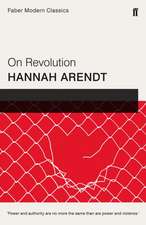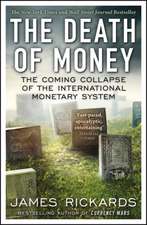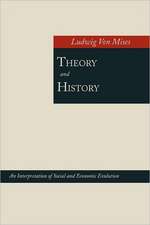The Republic: Dover Thrift Editions
Autor Plato, Dover Thrift Editions, Benjamin Jowetten Limba Engleză Paperback – 31 mar 2000 – vârsta de la 14 ani
Often ranked as the greatest of Plato's many remarkable writings, this celebrated philosophical work of the fourth century B.C. contemplates the elements of an ideal state, serving as the forerunner for such other classics of political thought as Cicero's "De Republica," St. Augustine's "City of God," and Thomas More's "Utopia."
Written in the form of a dialog in which Socrates questions his students and fellow citizens, "The Republic" concerns itself chiefly with the question, "What is justice?" as well as Plato's theory of ideas and his conception of the philosopher's role in society. To explore the latter, he invents the allegory of the cave to illustrate his notion that ordinary men are like prisoners in a cave, observing only the shadows of things, while philosophers are those who venture outside the cave and see things as they really are, and whose task it is to return to the cave and tell the truth about what they have seen. This dynamic metaphor expresses at once the eternal conflict between the world of the senses (the cave) and the world of ideas (the world outside the cave), and the philosopher's role as mediator between the two.
High school and college students, as well as lovers of classical literature and philosophy, will welcome this handsome and inexpensive edition of an immortal work. It appears here in the fine translation by the English classicist Benjamin Jowett.
Din seria Dover Thrift Editions
- 13%
 Preț: 22.75 lei
Preț: 22.75 lei - 15%
 Preț: 35.64 lei
Preț: 35.64 lei - 16%
 Preț: 21.16 lei
Preț: 21.16 lei -
 Preț: 25.99 lei
Preț: 25.99 lei - 16%
 Preț: 47.89 lei
Preț: 47.89 lei - 17%
 Preț: 20.90 lei
Preț: 20.90 lei -
 Preț: 32.03 lei
Preț: 32.03 lei -
 Preț: 50.91 lei
Preț: 50.91 lei -
 Preț: 35.46 lei
Preț: 35.46 lei -
 Preț: 27.86 lei
Preț: 27.86 lei -
 Preț: 24.99 lei
Preț: 24.99 lei - 15%
 Preț: 16.34 lei
Preț: 16.34 lei - 16%
 Preț: 26.49 lei
Preț: 26.49 lei - 16%
 Preț: 39.66 lei
Preț: 39.66 lei -
 Preț: 37.74 lei
Preț: 37.74 lei - 15%
 Preț: 46.41 lei
Preț: 46.41 lei -
 Preț: 62.50 lei
Preț: 62.50 lei - 16%
 Preț: 15.99 lei
Preț: 15.99 lei - 14%
 Preț: 16.61 lei
Preț: 16.61 lei - 14%
 Preț: 22.50 lei
Preț: 22.50 lei - 16%
 Preț: 21.34 lei
Preț: 21.34 lei - 14%
 Preț: 33.45 lei
Preț: 33.45 lei - 17%
 Preț: 15.54 lei
Preț: 15.54 lei - 32%
 Preț: 21.34 lei
Preț: 21.34 lei - 16%
 Preț: 15.99 lei
Preț: 15.99 lei - 17%
 Preț: 15.54 lei
Preț: 15.54 lei - 15%
 Preț: 27.57 lei
Preț: 27.57 lei - 16%
 Preț: 16.09 lei
Preț: 16.09 lei -
 Preț: 26.81 lei
Preț: 26.81 lei - 13%
 Preț: 71.80 lei
Preț: 71.80 lei -
 Preț: 19.04 lei
Preț: 19.04 lei - 17%
 Preț: 20.90 lei
Preț: 20.90 lei - 17%
 Preț: 20.90 lei
Preț: 20.90 lei -
 Preț: 55.66 lei
Preț: 55.66 lei -
 Preț: 28.44 lei
Preț: 28.44 lei -
 Preț: 26.18 lei
Preț: 26.18 lei - 14%
 Preț: 22.22 lei
Preț: 22.22 lei -
 Preț: 41.21 lei
Preț: 41.21 lei - 17%
 Preț: 18.25 lei
Preț: 18.25 lei - 17%
 Preț: 26.31 lei
Preț: 26.31 lei - 16%
 Preț: 21.16 lei
Preț: 21.16 lei - 15%
 Preț: 21.87 lei
Preț: 21.87 lei - 16%
 Preț: 32.01 lei
Preț: 32.01 lei - 15%
 Preț: 27.23 lei
Preț: 27.23 lei - 15%
 Preț: 16.43 lei
Preț: 16.43 lei - 17%
 Preț: 20.90 lei
Preț: 20.90 lei - 15%
 Preț: 35.28 lei
Preț: 35.28 lei - 14%
 Preț: 27.83 lei
Preț: 27.83 lei -
 Preț: 28.04 lei
Preț: 28.04 lei
Preț: 42.07 lei
Nou
8.05€ • 8.75$ • 6.77£
Carte disponibilă
Livrare economică 01-15 aprilie
Livrare express 15-21 martie pentru 18.97 lei
Specificații
ISBN-10: 0486411214
Pagini: 288
Dimensiuni: 132 x 210 x 17 mm
Greutate: 0.22 kg
Editura: Dover Publications
Seria Dover Thrift Editions
Locul publicării:United States
Descriere
Famous philosophical treatise of the 4th century BC concerns itself chiefly with the idea of justice, as well as such Platonic theories as that of ideas, the criticism of poetry, and the philosopher's role. Source of the famous cave myth and prototype for other imaginary commonwealths, including those of Cicero, St. Augustine, and More. Benjamin Jowett translation.
Textul de pe ultima copertă
This celebrated philosophical work of the fourth century B.C. contemplates the elements of an ideal state, serving as the forerunner for such other classics of political thought as Cicero's De Republica, St. Augustine's City of God, and Thomas More's Utopia.
Written in the form of a dialog in which Socrates questions his students and fellow citizens, The Republic concerns itself chiefly with the question, "What is justice?" as well as Plato's theory of ideas and his conception of the philosopher's role in society. To explore the latter, he invents the allegory of the cave to illustrate his notion that ordinary men are like prisoners in a cave, observing only the shadows of things, while philosophers are those who venture outside the cave and see things as they really are, and whose task it is to return to the cave and tell the truth about what they have seen. This dynamic metaphor expresses at once the eternal conflict between the world of the senses (the cave) and the world of ideas (the world outside the cave), and the philosopher's role as mediator between the two.
























